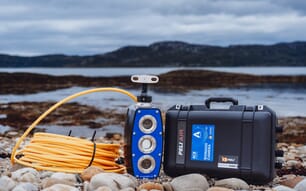“We will work closely with the NSW Department of Primary Industries and the Port Stephens Fisheries Institute to carefully monitor the health, welfare and performance of fish,” said Huon Aquaculture co-founders Peter and Frances Bender said, PortStephensExaminer reports.
“At Huon, we believe a commitment to research and development is crucial to a sustainable and successful aquaculture industry. Since 1986, we have championed aquaculture research in Australia and are internationally recognised for the technology and systems we have developed.”
Pisces Aquaculture was granted consent in 2001 to operate a commercial fish farm in the Bay, close to Hawks Nest. It folded in 2004 after storms damaged the farm’s pens, stock escaped and a move to raise funds on the Newcastle Stock Exchanged failed.
In 2013 NSW DPI was granted consent to operate the Marine Aquaculture Research Lease in Providence Bay, adjacent to the Pisces lease site. NSW DPI called for research partner EOIs in 2013-2014 and Huon was selected. It bought the Pisces lease in 2014.
“NSW DPI submitted a joint modification application with Huon Aquaculture to move both the NSW DPI research lease and the Huon lease,” a NSW DPI spokesperson said.
“If the modification application is successful, NSW DPI and Huon plan to initially operate three sea pens on the research lease to evaluate Yellowtail Kingfish production.”
In its joint application to the Department of Planning and Environment, NSW DPI and Huon propose to move the two aquaculture leases from about 3.5 kilometres to 7 or 9km offshore.
It also proposes to increase the size of fish cages from 80-120 metres in circumference to 168m, increase the size of the development from 20-30 hectares to 62 hectares, install permanent feed barges at each site and increase production from a maximum standing stock of 998 tonnes to 1200 tonnes.
“Trialing production in offshore sea pens is an exciting opportunity to develop this industry and create sustainable seafood production,” the NSW DPI spokesperson said.
“Moving the sea pens further offshore and adopting the latest aquaculture technology will result in better environmental outcomes, better production performance and moves the leases away from the Hawks Nest community.”




